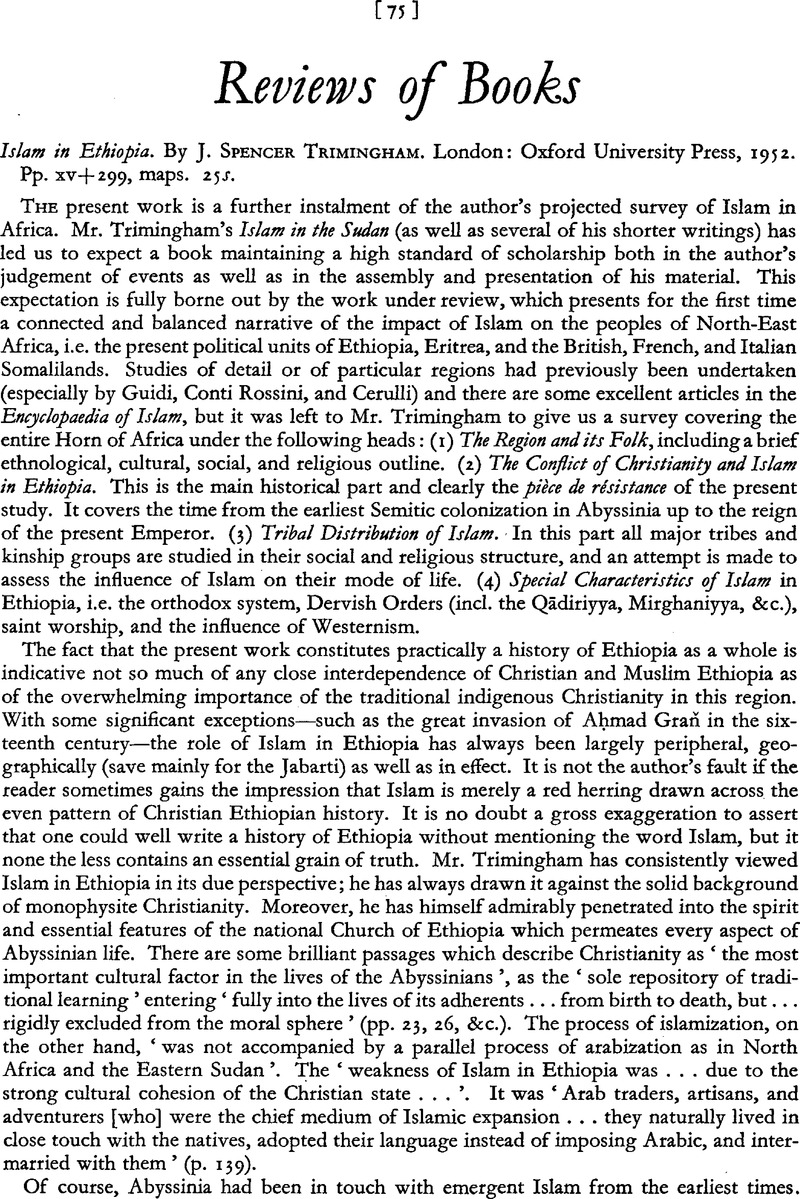No CrossRef data available.
Published online by Cambridge University Press: 21 August 2012

1 Trimingham thinks that ‘whilst the Church countenanced the institution of slavery… men were not wanting even in this barbaric Christian state (my italics) who condemned slavery … Abyssinian Christianity therefore had the seeds of reform within it …’ (p. 142). But the one example quoted, the philosopher Zar'a Ya'qob, has long since been shown to be a European, Giusto da Urbino, who composed the Ḥatatā Zar'a Ya'qob in Gə'əz. Rossini, Conti and Guidi, I. (Storia della Lett. Etiop., p. 77Google Scholar) have adduced excellent reasons why this work must be pseudepigraphical. The present reviewer who previously had some reservations (Exploration and Study of Abyssinia, pp. 61-62) has since been convinced of the accuracy of the Italian view.